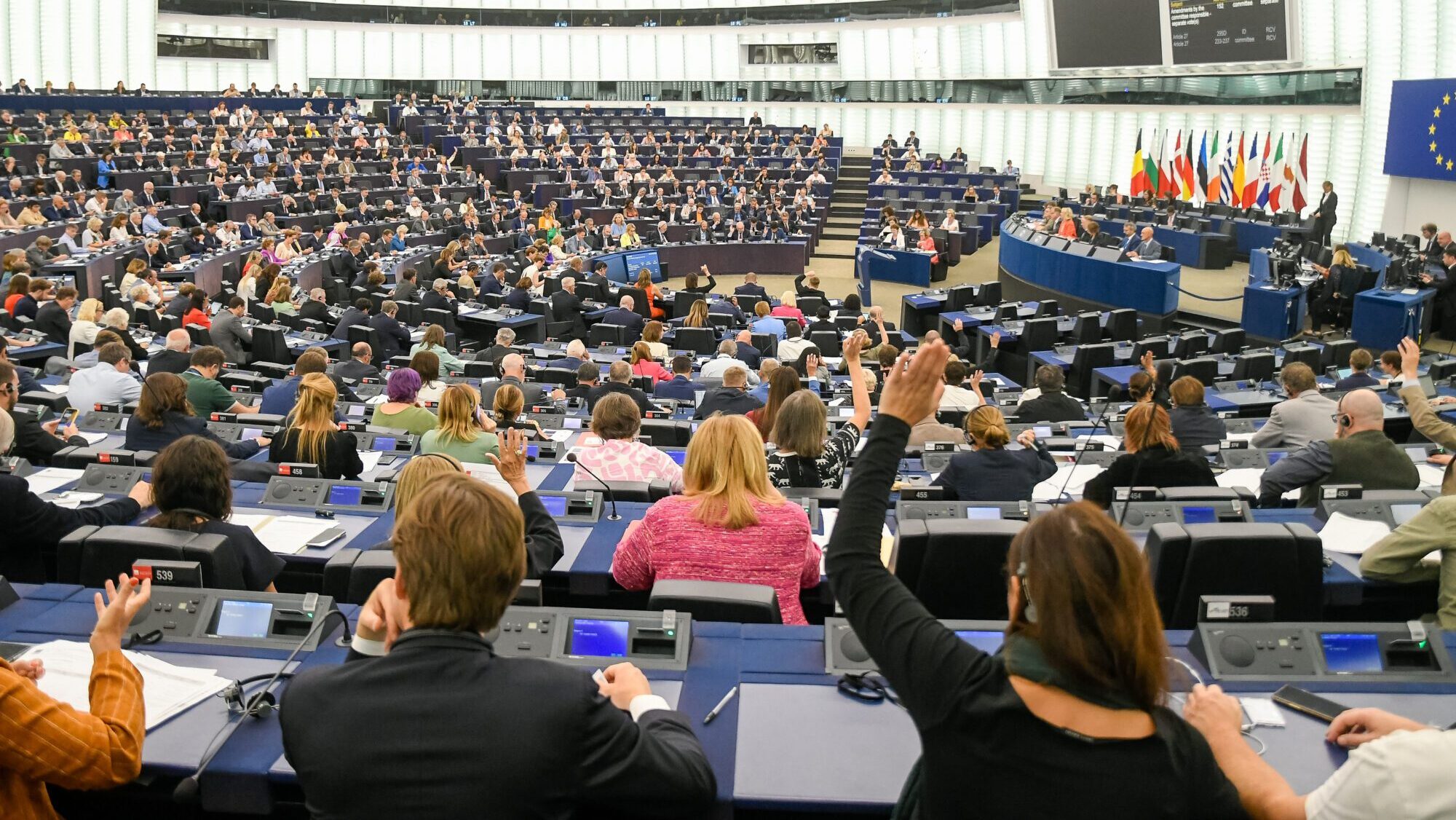Members of the European Parliament voted to approve the EP’s expansion plan on Wednesday, September 13th, agreeing to increase the number of MEPs by 15 after next year’s election, despite the Council heavily modifying their initial proposal and squashing any hope for creating a ‘transnational constituency.’
Make it even
As we reported then, the original proposal was to add 11 new MEPs to the Parliament in order to balance out the demographic changes of the last two decades, giving two more seats to Spain and the Netherlands, and one more to Austria, Denmark, Finland, Slovakia, Ireland, Slovenia, and Latvia each.
But to the frustration of many in the Parliament, the Council heavily modified the proposal during its own negotiations by adding four more seats—two for France, and one for Poland and Belgium each—raising the total number of seats in the EP from 705 to 720.
“I do regret … that while confirming our general approach, the Council did not consult the Parliament when it became clear that it intended to deviate from our proposal,” the file’s co-rapporteur, EPP deputy Loránt Vincze, said before the vote.
“The principle of mutual sincere cooperation would have required that the European Council informed us about its intention not to follow our proposal,” he added.
But despite the general disappointment, the proposal passed in the plenary by 515 for, 74 against, and 44 abstentions. The biggest bloc to vote against was the German CDU, which is usually considered the backbone of the EPP, the largest parliamentary group in Brussels and the one responsible for the file.
Money issues
Furthermore, the Council also adopted a recital calling for the increase in parliamentary seats to be “budgetarily neutral,” meaning that the Parliament should slightly lower the per capita cost of every MEP to make up for the 15 newcomers.
Vincze called this an “unfortunate decision,” sharing the opinion of many MEPs that the Council has overstepped its budgetary competencies. Budget committee chair Johan van Overtveldt (ECR) even called to include a statement in the final resolution “to make clear” that the Council has zero say in the Parliament’s budgetary matters.
Representing the Council presidency, Spanish European affairs chief Pascal Navarro argued in turn that the budget neutrality requirement still “leaves sufficient room for maneuver for the budgetary authority to make adjustments for the overall budget contribution from Parliament to cover the requisite expenditure.”
Besides, the final proposal is a result of a highly “complex balancing act” between the member states, so the Parliament should be grateful it even passed in the Council.
Transnationalism fails
Back in June, the European Parliament simultaneously adopted a resolution along with the initial proposal, calling for the Council to reconsider its rejection of an earlier plan that would create a further 28 seats for MEPs directly elected by an EU-wide constituency from a single “transnational list.”
The vast majority of EU member states, of course, outright rejected the radical idea at their next Council meeting, saying the transnational lists are incompatible with the principles of subsidiarity and proportionality, violate their sovereignty, and are seen as conflicting with the foundations of national representation in European politics, as designed by the treaties.
Essentially, the Council told the Parliament that it sees the proposal as an attempt to grab more power from the member states and that it won’t ever endorse such a thing. Nonetheless, Sandro Gozi, the liberal Renew’s co-rapporteur called the rejection a “political mistake” and a “useless provocation on the part of the Council” during this week’s plenary debate, hoping that there would be other chances to make the pan-European constituency a reality in the future.
Time for homework
Finally, the MEPs agreed that in order to avoid similar future confrontations with the Council every time they want to modify the Parliament’s composition, they would need to create a lasting and objective system for seat allocation, which keeps track of the demographic changes in the bloc and automatically updates the ratio before every parliamentary turn.
“We must remember that the identification requires an objective and definitive solution and the committee is also working on a formula, which means that the distribution of seats is defined by a mathematical criteria which is objective and impartial,” Gozi explained.






